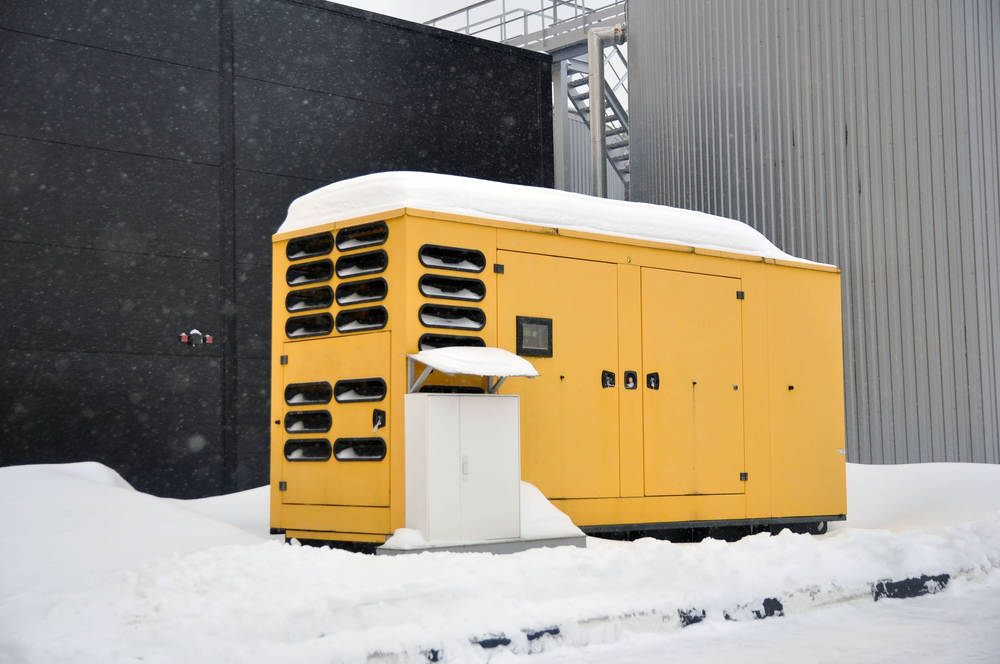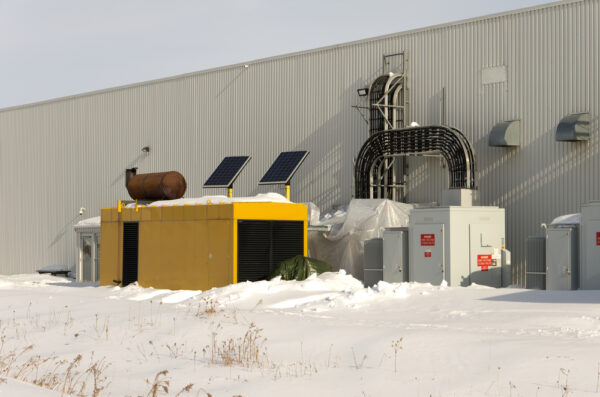Optimizing Fuel Efficiency for Diesel-Powered Equipment in Cold Temperatures

Cold weather starts a potentially harmful cycle for diesel engines. When temperatures drop, diesel-powered equipment works harder to deliver the same performance. The cold thickens fuel, increasing engine strain that can disrupt the delicate balance of combustion. The result? Lower fuel efficiency, higher costs, and unnecessary wear. But there’s good news: small adjustments can make a world of difference.
As you prepare your equipment for seasonal shifts, follow these steps to keep diesel equipment running efficiently — no matter how low the mercury plunges.
Cold weather directly impacts diesel engines
Diesel engines are rugged, but cold weather pushes them to their limits. Low temperatures cause diesel fuel to gel, clogging filters and reducing flow. Batteries also struggle to provide enough power for ignition, while cold air increases heat loss in the combustion chamber. It all means your engine needs more fuel just to maintain regular operation.
The best way to maintain fuel efficiency in cold weather is to make adjustments that specifically offset the effects of frigid temperatures. Here’s how:
- Use winter-grade diesel fuel: It’s formulated to resist gelling, for consistent flow even in subzero conditions.
- Install fuel heaters: These devices warm the diesel, keeping it fluid and ready to go.
- Inspect your equipment: Check for worn-out glow plugs, fuel injectors, and filters.
- Service the battery: Make sure it’s fully charged, properly protected, and free of corrosion.

Smart fueling practices help stretch every gallon
The way you fuel your equipment should be anything but routine during winter. Fuel management is really where efficiency begins, and how you fuel your equipment can really impact performance.
- Add anti-gel additives: These products lower the fuel’s freezing point, preventing clogs in the system.
- Fill up in the evening: A full tank reduces condensation, which can freeze and disrupt fuel flow.
- Store fuel properly: Keep it in a temperature-controlled area to reduce water contamination or gelling.
Optimize diesel fuel efficiency
Still not getting the efficiency you expect from your diesel-powered equipment? Now through the end of December, take advantage of GES’ Stack & Save special to get 15% off Repair, Sales & Service on 3 or more diesel units! Winter weather will persist for months to come; don’t miss this opportunity to get ahead of the problems it can cause.
Help the engine work smarter, not harder
Getting diesel engines up and running in cold weather is one thing; keeping them running efficiently is another. Once your engine is running, a few operational tweaks can keep your fuel consumption in check and improve the seasonal performance of your equipment:
- Warm up the engine, but don’t overdo it: Allow adequate warm-up time before putting engines under load, but avoid excessive idling. Generally 5-10 minutes is sufficient to get oil circulating properly in cold conditions.
- Support the engine’s efficiency: Install intake air preheaters or block heaters, which help maintain optimal operating temperatures and reduce strain during cold starts. These are critical for equipment kept outdoors.
- Keep moisture to a minimum: Regularly drain water separators and fuel/water filters. Any water in the system can freeze and cause significant fuel flow issues or component damage.

Small changes can offset seasonal issues
Winter doesn’t have to be the season where your equipment guzzles fuel and stumbles through every task. With preparation dialed in and precision adjustments handled, your operations will hum along reliably, smoothly, and efficiently. And, when a wrench gets thrown in the gears? Expert repairs and meticulous maintenance from GES can keep your machines sharp and your fuel dollars well spent, all season long.
